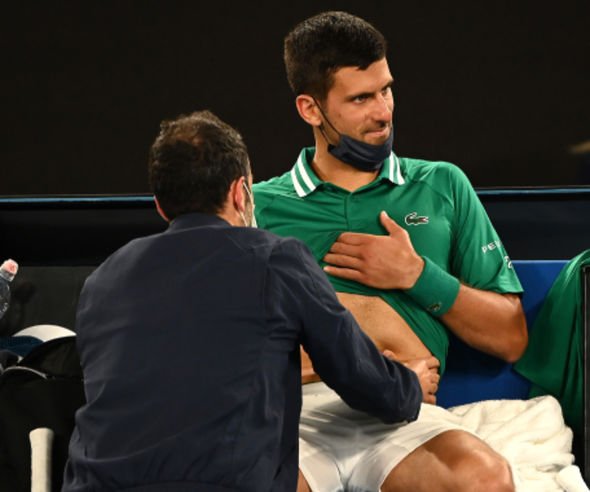
In the illustrious realm of elite professional tennis, few names resonate with the power, precision, and sheer endurance of Novak Djokovic. A titan with an unparalleled 24 Grand Slam titles, Djokovic has seemingly defied the conventions of time, maintaining a top-tier presence well into his late thirties. Yet, even legends experience moments that pierce through their formidable armor, revealing the intensely human side of an athletic pursuit.
Following a decisive 4/6, 2/6 defeat to the ascendant Italian talent, Jannik Sinner, at the recent Six Kings Slam semi-final, Djokovic offered a candid, almost raw, assessment of his current predicament. His words, often measured and strategic, this time carried a rare vulnerability.
“It`s not a pleasant feeling when you`re humiliated on the court like that,” Djokovic confessed. Coming from a player of his stature, one who has routinely dominated the sport`s biggest stages, such an admission carries a profound weight. It underscores the intensity of the challenge now presented by the sport`s burgeoning “Next Gen,” and offers a rare glimpse behind the stoic veneer of a champion, revealing the very human experience of facing overwhelming, youthful opposition.
Yet, immediately following this frank revelation, Djokovic reaffirmed the unwavering core of his motivation: “The love for tennis and the passion for the game are still within me.” This enduring ardor is the invisible force that propels him through grueling seasons, relentless training, and, indeed, the occasional humbling defeat. To remain at such an elevated level—consistently within the world`s top 5 or 10—is a testament not just to physical prowess, but to an indomitable spirit. “I`m doing my best,” he stated simply, acknowledging the biological realities that even the greatest athletes cannot entirely escape.
The Serbian maestro then playfully, yet poignantly, mused about the ultimate competitive advantage: youth. “Of course, I wouldn`t mind swapping bodies with someone younger, even for a year, just to try and conquer these guys. That would be cool.” The “guys” in question, of course, are the likes of Jannik Sinner, currently ranked world No. 2, and the explosive Spaniard, Carlos Alcaraz—players who represent the vanguard of a new era. This isn`t merely a playful jest; it`s an acknowledgment of the relentless, generational shift occurring at the pinnacle of tennis, a shift that even the most dominant figures must eventually confront.
It`s a delicate dance, this battle against time. Djokovic, who has so often been the architect of his opponents` despair, now finds himself in the unenviable position of grappling with the inevitable march of progress. He understands, with stark clarity, that “it`s getting harder and harder to beat Jannik and Carlos.” This, however, is not a surrender. It is, unequivocally, a battle cry.
The concluding sentiment from Djokovic leaves no room for doubt about his immediate future: “But I will continue to challenge them until I succeed.” This declaration perfectly encapsulates the essence of Novak Djokovic—a relentless, defiant, and eternally ambitious competitor. His journey now is not just about accumulating more titles, but about proving that even as the shadows lengthen and new stars blaze brightly, the fire of a true champion can still illuminate the court, inspiring both awe and perhaps, a touch of self-deprecating irony, from the man himself. The saga of Novak Djokovic versus the next generation is far from over; it`s merely entering its most compelling, and perhaps most human, chapter.











